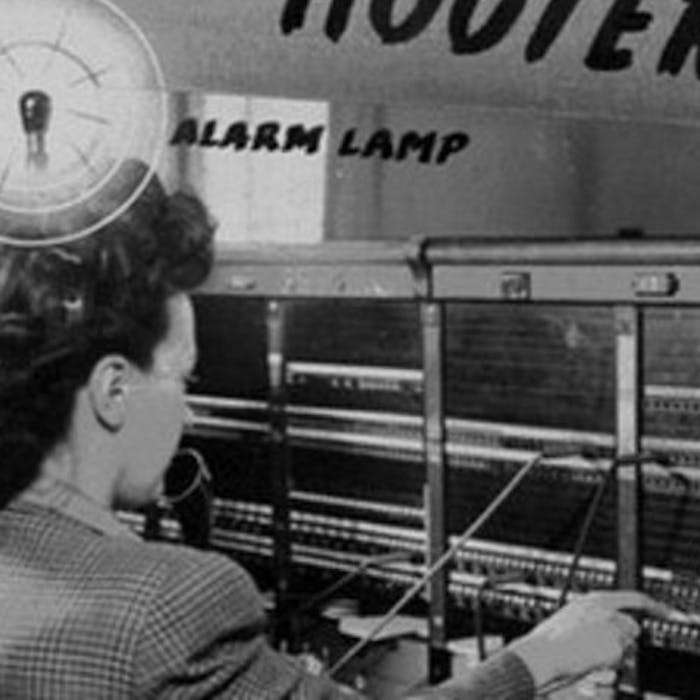
999 - the world's first emergency telephone number
The world's first emergency telephone service was introduced on 1st June 1937 In London - allowing callers to dial 999 to make an emergency call to the police, fire or ambulance.
Before its introduction to make a telephone call for help you either dialled the number of the fire, police or ambulance station directly, or dialled '0' for the operator at the telephone exchange. There were many complaints of waiting up to 15 minutes before an operator would answer the call. A fire in Wimpole Street, London, in 1935, in which five people died, spot-lighted the problems with telephone operators answering emergency calls in a swift manner.
It was recognised that there had to be a way of prioritising emergency calls. The G.P.O. (General Post Office) tested various ways to implement an emergency signalling system either by dialling certain numbers or a special button on each telephone. Ultimately the decision was to dial the numbers 999. When the new 999 calls came through to the exchange flashing red lights and a klaxon alerted operators.
A notice in the Evening News advised the public how to use the new service.
"Only dial 999... if the matter is urgent; if, for instance, the man in the flat next to yours is murdering his wife or you have seen a heavily masked cat burglar peering round the stack pipe of the local bank building.
"If the matter is less urgent, if you have merely lost little Towser or a lorry has come to rest in your front garden, just call up the local police."
A week later, on 7th July 1937, the press reported the first arrest after a 999 call.
John Stanley Beard was woken in the early hours of the morning by a noise underneath his bedroom window in the affluent neighbourhood of Hampstead, north London.
The architect told Marylebone Police Court that he looked out and saw a man's foot.
He shouted at the man who, on hearing Mr Beard's voice, ran off down the garden path, jumped over some railings and headed towards Primrose Hill.
Meanwhile, Mr Beard's wife - referred to in reports only as Mrs Beard - dialled 999.
In less than five minutes, 24-year-old labourer Thomas Duffy had been arrested. He was later charged with an attempted break-in with intent to steal.
In a public relations coup for the new service, the Times reported that Mr Beard told the court that he was pleased to see that his tax money was being put to good use.
"My wife made use of the new signal which we were instructed to use yesterday on the telephone, and as a result of using that signal almost instantaneous connection was made with the police station, and in less than five minutes this man was arrested," he said.
"It struck me, as a householder and fairly large taxpayer, that we are getting something for our money, and I was very much impressed by it."
In the first week of the system operating, The Times newspaper reported that 1,336 calls had been made on the special number: 1073 were genuine, 171 misused the system, and there were 92 'curiosity calls'.
The 999 service was rolled out nationwide over the next few decades.
All telephone exchanges in Britain became automated by 1976 which allowed the 999 service to become fully fledged nationwide. In 1986, the 999 service introduced a system to operate with mobile phones.
Further reading
Links to external websites are not maintained by Bite Sized Britain. They are provided to give users access to additional information. Bite Sized Britain is not responsible for the content of these external websites.
